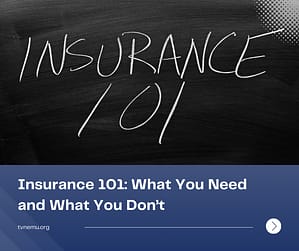
Navigating the world of insurance can be overwhelming, with a myriad of options and policies that often seem designed to confuse rather than clarify. Understanding the basics of various types of insurance, however, is crucial to making informed decisions about what coverage you truly need, and what you can do without. This guide breaks down the essentials of health, life, and auto insurance, aiming to demystify the process and help you tailor your insurance portfolio to match your life stage and financial goals.
Health Insurance – The Non-Negotiable
Health insurance is arguably the most critical type of insurance. In countries without universal healthcare, medical expenses can quickly become a leading cause of financial hardship. Even with healthcare systems in place, additional private health insurance can cover gaps in services and provide access to more comprehensive or faster care.
Understanding Your Needs
When evaluating health insurance options, consider your current health, medical history, and potential future health needs. Key factors to consider include coverage for prescriptions, specialist visits, and whether you prefer certain hospitals or doctors that are “in-network.”
Balancing Cost and Coverage
Health insurance plans come with various pricing structures, including premiums, deductibles, copays, and out-of-pocket maximums. Balancing these costs with the level of coverage requires careful consideration of your typical healthcare needs and financial situation. For more on managing these expenses, The Ultimate Guide to Personal Finance Management offers valuable insights.
Life Insurance – Safeguarding Your Loved Ones’ Future
Life insurance provides financial protection to your dependents in the event of your untimely death. Deciding if you need life insurance—and how much—depends largely on your personal and financial circumstances.
Term vs. Permanent Life Insurance
- Term Life Insurance offers coverage for a specified period and is often recommended for its lower premiums and straightforward protection.
- Permanent Life Insurance covers you for life, with some policies offering investment components. However, the higher premiums make it less suitable for everyone.
Assessing Your Needs
If you have dependents, debts, or want to ensure your funeral expenses won’t burden your family, life insurance is a wise choice. The amount of coverage should align with your debts, income replacement needs, and future obligations such as children’s education expenses.

Auto Insurance – A Legal Requirement and Financial Protector
Auto insurance is mandatory in most places, but the extent of coverage needed can vary. At its core, auto insurance protects you against financial loss in the event of an accident or theft.
Essential Coverage Types
- Liability Insurance: Covers damages to others caused by you in an accident.
- Collision and Comprehensive: Collision covers your vehicle’s damage in an accident, while comprehensive covers non-collision-related damage.
Making Informed Choices
Choosing the right auto insurance policy involves considering the value of your vehicle, how much you drive, and your financial ability to absorb the costs of potential accidents. For newer or more expensive vehicles, full coverage is often recommended. However, for older vehicles, you might opt for liability coverage only.
Conclusion
Insurance is a fundamental part of financial planning, offering protection against the unforeseen and peace of mind. By understanding the essentials of health, life, and auto insurance, you can make informed decisions about the types of coverage that best suit your needs and financial goals. Remember, the best insurance plan is one that provides the necessary protection without overextending your budget. For further reading on financial planning and safeguarding your future, explore insights on Investing in Your Future: Education and Career Development.